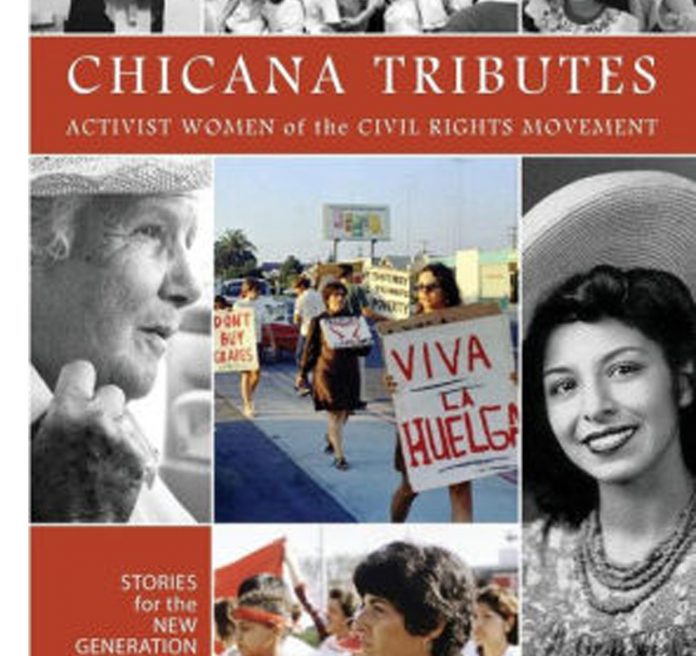The influence in San Diego County of Chicanas is now documented in a new book titled “Chicana Tributes: Activist Women of the Civil Rights Movement – Stories for the New Generation.”
The book, released over the summer, is divided into 12 chapters and features 61 San Diego Chicanas who overcame stereotypes and obstacles to be in leadership roles in education, the arts, politics and other areas.
“We highlight or recognize Chicanas who have contributed to San Diego history because we don’t get recognized unless you become the mayor or something (prestigious) like that,” said the book’s co-editor Sonia Lopez, a Chula Vista resident. “This was a way to write history in a way that’s never been done.”

“Chicana Tributes: Activist Women of the Civil Rights Movement – Stories for the New generation” features women of the past and present. Among those past women are Laura Rodriguez, who is considered the matriarch of Chicano Park; and Marta Sotomayor, the founder of the National Hispanic Council on Aging.
Each person is written about by a different author.
The book also mentions influential women in the South Bay such as Norma Hernandez, the first Latina president at Southwestern College; Norma Chavez Peterson, executive director of the American Civil Liberties Union of San Diego and Imperial counties; and Chula Vista Mayor Mary Casillas Salas.
“It’s really a great honor to be held in that regard,” Casillas Salas said. “It’s been years of hard work that led me to the position I am in. Not only is it hard work but it required the support of many of my friends, many of them women in that book. So, I am very proud to be among that group of women.”
Casillas Salas was recognized in the book not only for her political contributions but also for the work she has done with Mana de San Diego, a nonprofit that empowers Latinas through education, leadership, development, community service and advocacy.
Lopez said it is important for people to understand the history of Chicanas in the San Diego region.
“We are not in the history books,” Lopez said. “Women overall don’t really get recognized for their contributions when they contribute to anything. Of course, minority women — Chicanas in particular — nada,” she said.
Lopez served as co-editor with Rita Sanchez.
Lopez previously worked as a full-time lecturer at San Diego State University in the department of Mexican-American studies soon after the department was founded.
The book can be purchased on amazon.com or at Barnes and Noble.















